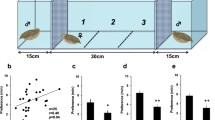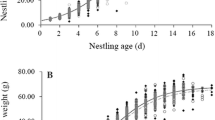Abstract.
Sex allocation theory predicts that parents should bias investment toward the offspring sex that confers higher relative fitness on the parents. When variance in reproductive success is higher in males than females, and some males are more attractive to females than others, thereby achieving higher reproductive success, female parents mated to attractive males are expected to bias reproductive allocation toward sons. Modification of the primary sex ratio is one mechanism by which avian parents may bias allocation. In mate choice trials, captive female dark-eyed juncos (Junco hyemalis) prefer to associate with males whose circulating testosterone level has been elevated experimentally. We asked whether females socially mated to testosterone-treated males in nature might bias the sex ratio of progeny in favor of sons. We determined the primary sex ratio of broods using a sex-linked molecular marker, the CHD gene on the W chromosome. We found no relationship between the hormonal treatment of males and the primary or secondary sex ratios of offspring produced by their social mates. Sex ratio was also unrelated to breeding-season date, study year, male viability, or female age. While unlikely, it is possible that female juncos are not able to manipulate the primary sex ratio of their broods. More likely, possible benefits to female juncos of producing attractive sons may be small because (1) attractive males do not necessarily have higher fitness, depending on the trade-offs involved for males, and (2) when such benefits exist, they may be outweighed for females by the costs of compensating for the reduced paternal care of attractive males.
Similar content being viewed by others
Author information
Authors and Affiliations
Additional information
Electronic Publication
Rights and permissions
About this article
Cite this article
Grindstaff, J.L., Buerkle, A.C., Casto, J.M. et al. Offspring sex ratio is unrelated to male attractiveness in dark-eyed juncos (Junco hyemalis). Behav Ecol Sociobiol 50, 312–316 (2001). https://doi.org/10.1007/s002650100367
Received:
Revised:
Accepted:
Issue Date:
DOI: https://doi.org/10.1007/s002650100367




